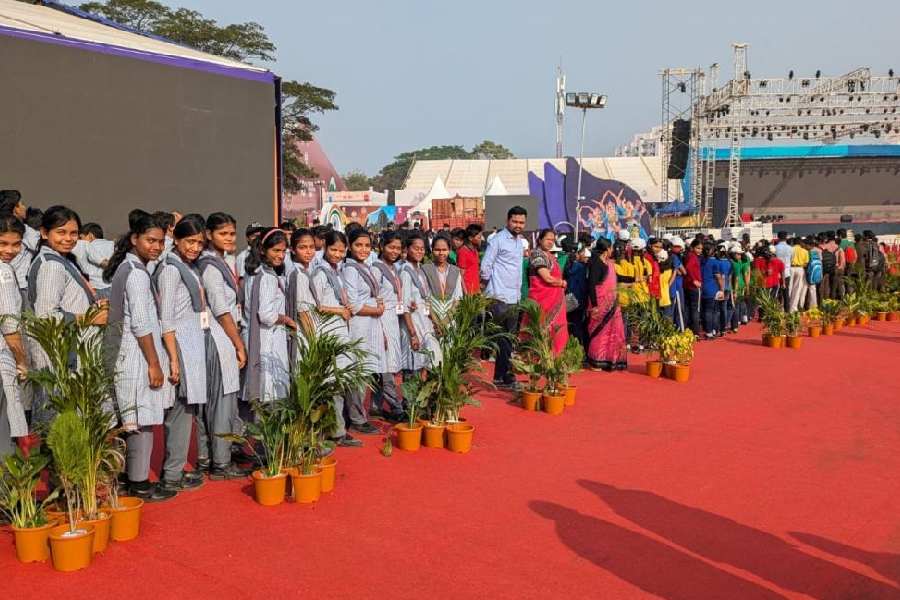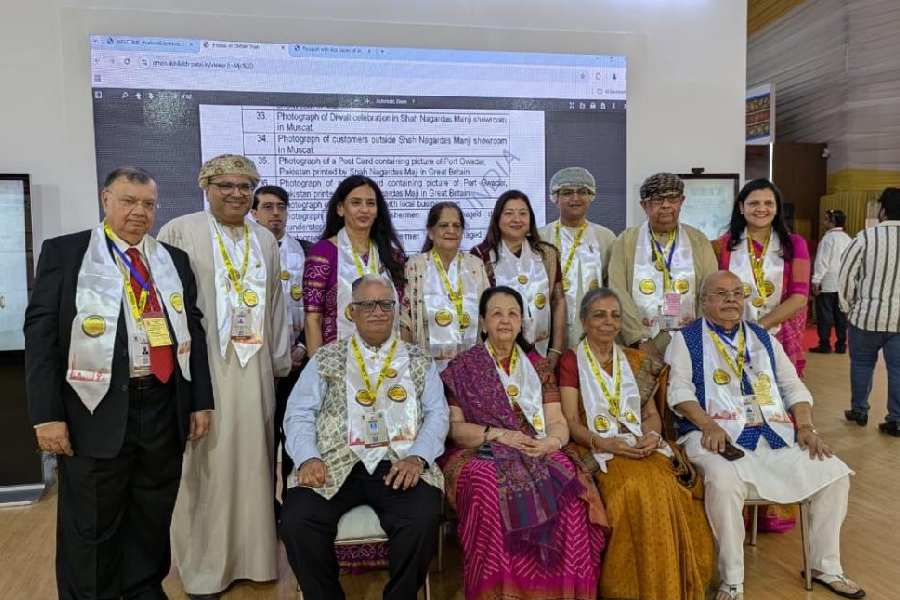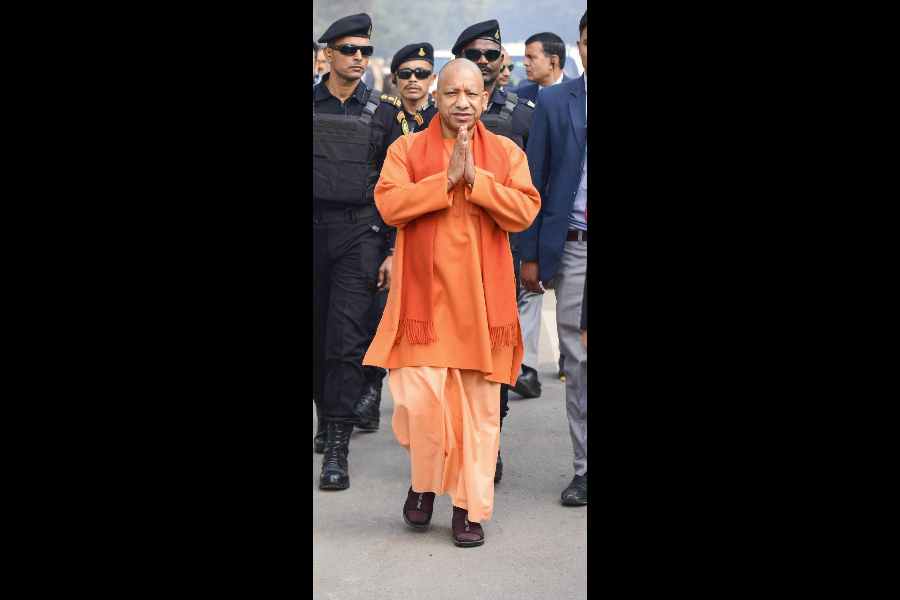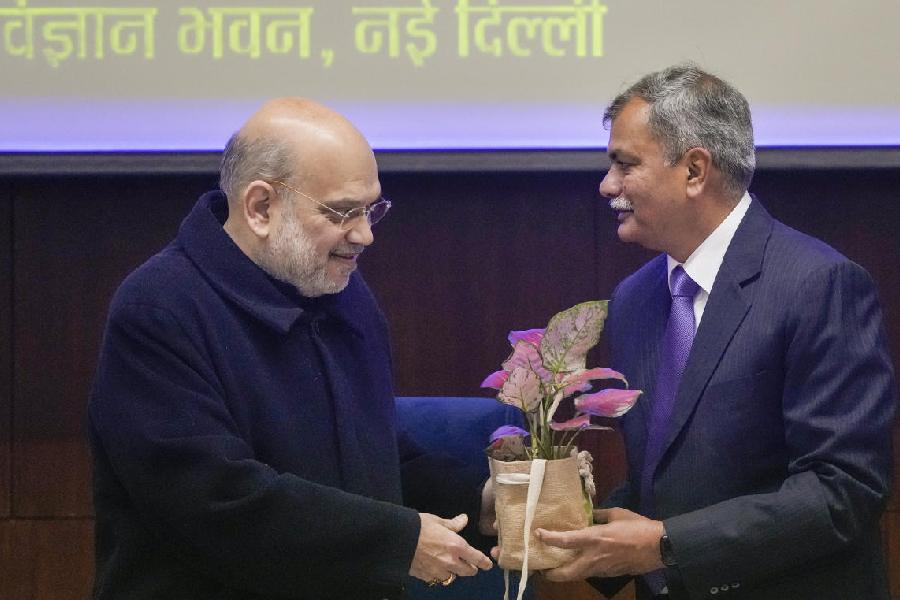The Lakhoo’s Exchange, recognised as one of the leading money exchange houses in Oman, set up by the Lakshmidas Tharia Ved family in 1904, has played a significant role in Oman’s growth. Now the members of the Lakhoo family are in Bhubaneswar to share their success stories during the ongoing Pravasi Bharatiya
Divas (PBD).
Stock exchanges constitute the backbone of business in any country. It is often regarded with curiosity and admiration. But most people know little about their functioning. Hence, when they encounter the pioneers of these exchanges and learn about their contribution to the economic growth of a country, they are left awestruck.
Many students on Saturday turned up at the PBD venue at Janata Maidan to see the exhibition showcasing the success stories of Pravasi Bharatiyas. Although the 18th PBD concluded here on Friday, the exhibition was extended for two additional days for the public.

Students of different educational institutions at Pravasi Bharatiya Divas
Initially, the public was not allowed to enter the venue. Once the gates opened, a large crowd arrived to witness the inspiring stories of the Pravasi Bharatiyas. The ministry of external affairs organised a special exhibition focusing on the Indian diaspora in Oman, highlighting the strong bond between the two nations.
Chinmay Kumar Das, a law student from the Madhu Sudan Law College, Cuttack said: “People in Odisha are now increasingly interested in the share market and have become more acquainted with the concept of stock exchanges. It is surprising and inspiring to learn that people from India travelled to other countries and even set up a stock exchange there. The story of the Lakhoo family is
unbelievable.”
The Lakhoo family migrated from India two centuries ago and has become one of the most prominent families in Muscat, Oman. One of the descendants shared how his forefathers started their journey from humble beginnings to establish a
renowned exchange.
Rajendra Ved from the Lakhoo family and director of Lakhoo’s Exchange told The Telegraph: “We are proud of our roots. My forefather went to Oman and started a small grocery shop. It is a phenomenal journey. Now we have forayed into many businesses, including financial transactions. Maintaining trust in the money business is more important now than ever in today’s business environment. For us, the trust of our customers and business partners is the currency for growth and success.”
Lakhoo’s Exchange is considered one of the best exchange houses in the industry. Lakhoo’s Exchange, established in Muscat, Oman in 1904, is one of the oldest money exchange houses operating in Oman and a pioneer in providing remittance and foreign exchange services for over a hundred years now. It is serving its customers through 17 strategically located branches in Oman.
The exhibition also highlighted the contributions of the Khimji Ramdas Group of Companies, a success story in Oman. The group’s journey began 144 years ago when Ramdas Thackersey migrated to Oman in 1870. Over time, the family established the Khimji Ramdas Group, which became a cornerstone of Oman’s economic development. Similarly, Dhanji Moraji arrived in Oman around 1846, trading in dry dates, fish, lemons and Indian food. He expanded his business from Kutch to Zanzibar and later across Oman. Ratansi Purushottam came to Muscat in 1855 at the age of 14 to gain experience in his ancestral firm, M/s Natha Maccan. In 1867, he started his own business, Ratansi
Purushottam.
Other notable contributors include Gordhandas, who arrived in 1895 and transitioned from running a grocery store to trading building materials with his son Shri Ratanshi.











